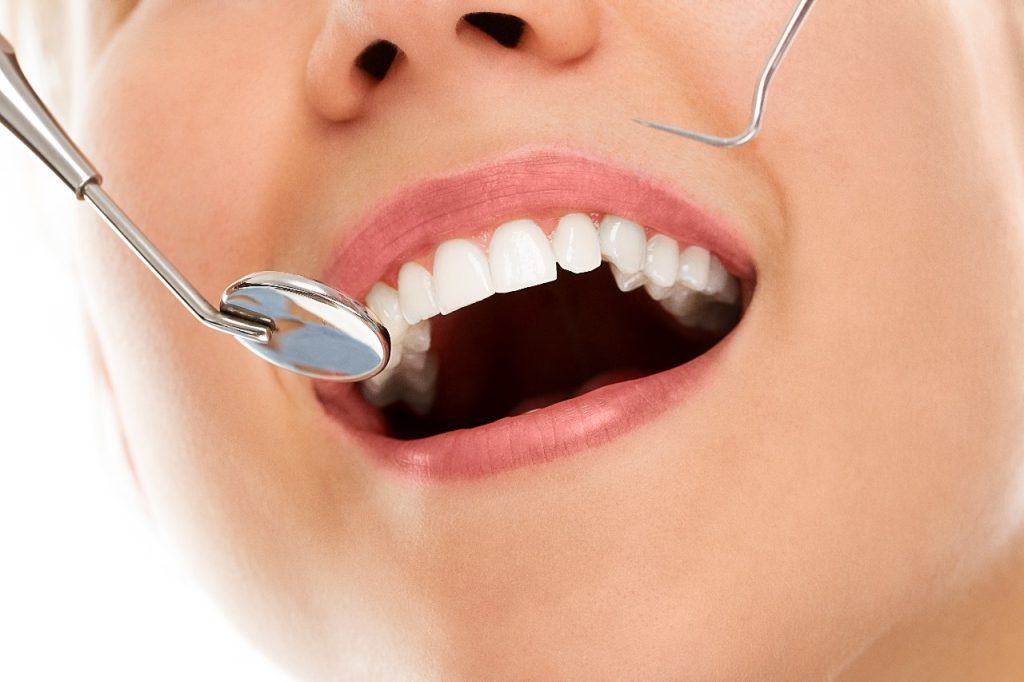Dentures, whether full or partial, are an excellent solution for those who have lost natural teeth. However, like natural teeth, dentures require regular cleaning and care to ensure they remain in top condition. Without proper maintenance, dentures can become a breeding ground for bacteria, leading to oral health issues such as gum disease, bad breath, and infections. In this article, we’ll explore the most effective methods for cleaning dentures, ensuring they remain fresh, stain-free, and comfortable to wear.
Table of Contents
Toggle- Why Is Daily Cleaning of Dentures Important?
- What Are the Best Practices for Cleaning Dentures?
- What Are the Essential Products for Denture Care?
- How Can You Remove Denture Adhesives?
- How Often Should You Soak Dentures?
- Are There Common Mistakes You Should Avoid When Cleaning Dentures?
- What Happens If You Don’t Clean Your Dentures Properly?
- How Can You Extend the Lifespan of Your Dentures?
- Final Thoughts on Denture Cleaning
- References:
- FAQs on How to Clean Dentures
Why Is Daily Cleaning of Dentures Important?
Daily denture cleaning is vital for maintaining both the dentures themselves and your overall oral hygiene. Dentures can accumulate plaque, food particles, and bacteria, just like natural teeth. Without a proper daily denture care routine, you may experience irritation, bad breath, gum disease, or even infections such as stomatitis. By cleaning your dentures daily, you help prevent these issues while extending the lifespan of your dentures.
Furthermore, plaque build-up on dentures can harden into tartar, which may lead to unsightly stains and a rough surface on your dentures, causing discomfort. Research from the Australian Dental Association (ADA) highlights the importance of maintaining oral hygiene when using dentures, as poor cleaning can affect both the mouth and denture materials.
What Are the Best Practices for Cleaning Dentures?
Adopting a daily cleaning routine is essential for anyone with dentures. This routine should involve several key steps to ensure your dentures stay clean and free from harmful bacteria. Below is a detailed step-by-step list that outlines the best practices for cleaning dentures:
- Remove and Rinse: After eating, remove your dentures and rinse them under lukewarm water. This helps remove any food particles that may be trapped between the denture and gums. Never use hot water as it can warp the shape of your dentures.
- Brush Your Dentures: Using a soft-bristle toothbrush or a specialised denture brush, gently scrub your dentures with a non-abrasive cleanser. It’s important to clean all surfaces, including the grooves that sit against your gums. Be sure to avoid using regular toothpaste, as it can be too abrasive and damage your dentures.
- Soak Dentures Overnight: Dentures should be kept moist to maintain their shape, and this is why soaking them overnight is crucial. Use a denture-cleaning solution designed to disinfect and remove bacteria. Dentures should never dry out as they could crack or warp.
- Rinse Thoroughly Before Wearing: Before putting your dentures back in your mouth, make sure to rinse them thoroughly with water, especially if they’ve been soaked in a cleaning solution. Some cleaning solutions contain chemicals that can be harmful if ingested.
- Brush Your Gums and Tongue: Even though dentures replace your natural teeth, you should still take care of your gums, tongue, and the roof of your mouth. Brush these areas gently with a soft-bristle brush to remove plaque and stimulate blood circulation in your tissues.
What Are the Essential Products for Denture Care?
Using the right tools is important to ensure you are cleaning your dentures effectively. Below is a table of recommended products that you can use daily to maintain your dentures:
| Product | Purpose | Use | Recommendation |
| Denture brush | Cleaning dentures | Soft-bristle brush to remove debris from dentures | Daily use |
| Denture cleaning tablets | Disinfecting and whitening | Dissolve in water for overnight soaking | Weekly to remove stains and bacteria |
| Non-abrasive denture cleanser | Gentle cleaning without scratching | Use with the denture brush for thorough cleaning | Daily after meals |
| Adhesive remover pads | Removing denture adhesive | Wipe down to eliminate remaining adhesive from dentures | When using denture adhesives |
| Ultrasonic denture cleaner | Deep cleaning with vibrations | Use with water and denture cleaner for enhanced results | Optional, for deep cleaning |
| Mild hand soap | General cleaning alternative | Use instead of toothpaste to prevent abrasive damage | If no denture-specific cleaner available |
These products help ensure that you’re not only cleaning your dentures properly but also taking care of them in a way that prolongs their lifespan.
How Can You Remove Denture Adhesives?
If you use a denture adhesive, it’s important to ensure that all adhesive residue is removed from both your mouth and your dentures. To do this, gently clean the inside of your mouth, particularly your gums, with a soft-bristle brush or gauze pad to remove any adhesive. Your dentures can be cleaned using an adhesive remover pad, which is specifically designed to wipe away adhesive residue without damaging the dentures.
How Often Should You Soak Dentures?
Soaking dentures overnight is crucial to keep them from drying out. Denture cleaning tablets are specially formulated to break down food particles and bacteria that might not be fully removed during brushing. These tablets not only help sanitise the dentures but also assist in preventing stubborn stains and keeping them odour-free.
An overnight soak in lukewarm water with a denture-cleaning solution is usually recommended. However, it is important to avoid any household cleaning products or bleach, which can weaken the material of the dentures and cause discolouration.
Are There Common Mistakes You Should Avoid When Cleaning Dentures?
While denture cleaning is simple, there are common mistakes people make that could affect the durability and hygiene of their dentures:
- Using Hot Water: Exposing your dentures to hot water can cause them to warp, affecting their fit.
- Using Abrasive Cleaners or Toothpaste: Many people mistakenly believe that regular toothpaste is suitable for cleaning dentures. However, toothpaste can be abrasive and cause scratches on the surface of your dentures, making them more prone to stains and bacteria build-up.
- Skipping Nightly Soaking: Dentures need to stay moist to retain their shape. If they dry out, they can crack or become misshapen. Always soak them overnight in a suitable solution.
- Using Household Cleaners: Avoid the temptation to use bleach or other harsh cleaning agents on your dentures. These chemicals can damage the denture material and are harmful if not properly rinsed off before use.
According to a study by the ADA, consistent denture care that includes soaking in antibacterial solutions significantly reduces the risk of denture-related stomatitis.
What Happens If You Don’t Clean Your Dentures Properly?
Failing to clean your dentures properly can lead to a range of health problems, including:
- Bacterial infections: Poor hygiene can lead to an increase in bacteria, causing infections such as stomatitis or gum irritation.
- Bad breath: As with natural teeth, food particles that are not cleaned off will begin to decay, leading to unpleasant odours.
- Irritated gums: Dentures that are not cleaned properly may cause irritation or even infection in the gums, particularly if bacteria and plaque accumulate along the gumline.
How Can You Extend the Lifespan of Your Dentures?
Proper care and regular check-ups with your dentist sydney cbd will help ensure that your dentures remain in good condition for as long as possible. Dentures, like any dental appliance, wear down over time. Regularly brushing, soaking, and using the right cleaning tools will prevent stains, cracks, and warping. It’s also a good idea to have your dentures checked by your dentist at least once a year to ensure they still fit correctly and that your oral health is maintained.
If you are unsure about how to maintain your dentures or are experiencing discomfort, it’s always best to consult your dentist.
Final Thoughts on Denture Cleaning
Keeping your dentures clean is essential for maintaining both your oral hygiene and the condition of the dentures themselves. By following the steps outlined in this article, you can prevent common issues like gum infections, bad breath, and discomfort. Remember, using the right cleaning products, adopting a daily cleaning routine, and avoiding common mistakes will ensure your dentures remain fresh, clean, and in optimal condition for as long as possible.
If you’re seeking professional advice on denture care or any dental-related issue, the team at Macquarie Dental is always available to provide support and guidance.
Read More: What Are Dentures and How Can They Help You?
References:
- Australian Dental Association. (n.d.). Denture Care and Maintenance.
- Australian Dental Association. (n.d.). Oral Hygiene for Denture Wearers.
FAQs on How to Clean Dentures
-
How often should I clean my dentures?
You should clean your dentures daily. It’s important to brush them at least once a day with a soft-bristle brush and a non-abrasive denture cleanser. Additionally, soak them overnight in a denture-cleaning solution or lukewarm water to keep them moist and bacteria-free.
-
Can I use regular toothpaste to clean my dentures?
No, regular toothpaste is too abrasive for dentures and can cause scratches on the surface, leading to stains and bacteria build-up. It’s best to use a denture-specific cleanser or mild soap with a soft-bristle brush to avoid damaging the denture material.
-
What should I do if my dentures have stains?
For denture stains, use a denture-cleaning tablet that is designed to help remove stains and discolouration. Soak your dentures in the solution as per the instructions on the packaging. For stubborn stains, consult your dentist for professional advice or treatment options.
-
How do I remove denture adhesive from my dentures?
To remove denture adhesive, gently brush the grooves of your dentures with a soft brush and warm water. For a more thorough clean, you can use adhesive remover pads designed to safely eliminate any remaining adhesive without damaging the denture material.
-
Can I leave my dentures in overnight?
While it’s important to keep your dentures moist, they should be removed overnight to give your gums a chance to rest and breathe. Soaking your dentures in a suitable solution or water overnight will prevent them from drying out, keeping their shape intact.
-
What can happen if I don’t clean my dentures properly?
Improperly cleaned dentures can lead to various issues, including bad breath, bacterial infections like stomatitis, and gum irritation. Dentures that aren’t regularly cleaned may also accumulate plaque and tartar, which can cause discolouration and damage to both your dentures and oral health.



